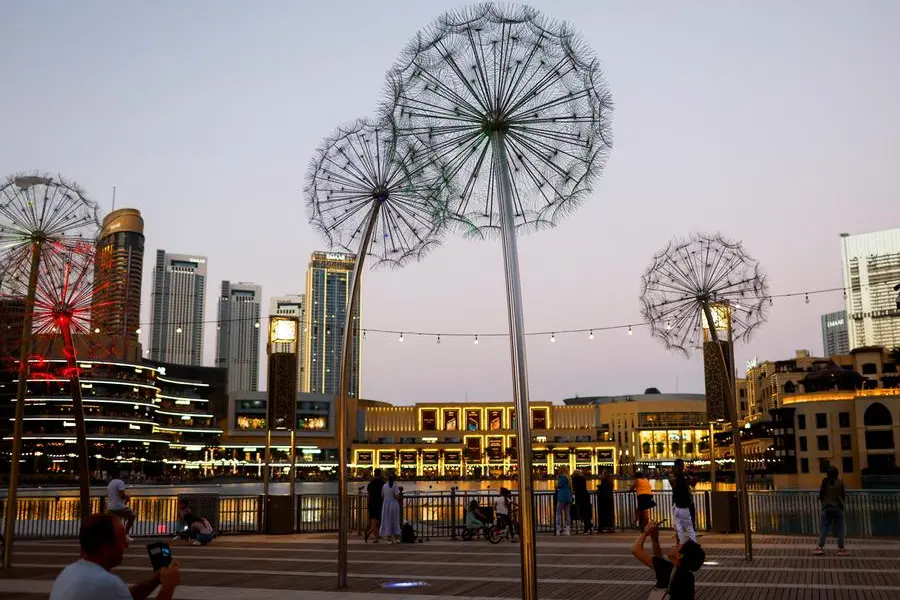PHOTO
Suhoor – the pre-dawn meal eaten during Ramadan – while on duty. However, to his joy, a restaurant in the building he works in offered to give him the meal for free.
“We always have extra food as we have a steady stream of customers right from Iftar until Suhoor,” said Ahmed Bilal, the manager of the Arabic restaurant. “So we offer Suhoor meals to several security guards and cleaners who work in the buildings around here. We have been doing it for more than 10 years and by God’s grace, we have never had to throw away excess food or faced a food shortage.”
More UAE residents are being encouraged to share their extra food with others this Ramadan. The National Food Loss and Waste Initiative, ne’ma, is encouraging the community to be mindful of food waste by sharing, donating and saving extra food, supporting the UAE’s vision to preserve food resources for a sustainable future.
On Tuesday, UAE Minister of Climate Change and Environment, Mariam bint Mohammed Al Mheiri, called on residents to do their bit in her tweet, which was accompanied by a video.
“This Ramadan, let's conserve food and share the blessings with those in need. Reducing food waste is your decision. Join me in reducing food waste and spreading joy,” she tweeted.
Earlier this year, the minister had announced a step-by-step guide for food waste reduction in buffets, restaurants and canteens. The blueprint was based on a successful pilot in two major hotel chains in the UAE that helped achieve a reduction in food waste of over 40 per cent.
Careful planning
For many residents in the UAE, Ramadan is a time when they carefully plan their meals to avoid wastage. Emirati mother Umm Khalid said she repurposes Iftar and Suhoor meals. “When there is leftover food, I always like to repurpose it,” she said. “For example, when there is leftover roast chicken, I shred it and use as a filling for sandwiches for my younger children’s lunchboxes, as they are not fasting.”
ne’ma, a collaboration between the Ministry of Climate Change and Environment, Emirates Foundation and the Abu Dhabi Crown Prince Court, aims to reduce food waste by 50 per cent by the year 2030.
Syrian resident Faten said she always shares extra food with the cleaners, watchmen and delivery riders in her building. “When there is extra food, I take a plate of it along with some snacks to whoever is on duty in the building at the time of Iftar and Suhoor,” she said. “They are usually very happy to receive it because the food they bring from their camps is usually cold by the time they eat. So they always appreciate a hot meal.”
Indian expat Zehra Khan carefully plans her meal preparation to ensure that nothing is wasted. “The week before Ramadan, I was batch making snacks and I had to use several egg whites to dip it in,” she said. “I saved up the egg yolks and turned them into custard the following day which I used up as a filling in several dishes.”
Zehra also plans her grocery shopping accordingly. “For example, when I buy a lot of vegetables to make stir fries or noodles, I also plan a mixed vegetable dish at the end of the week to use up any leftover veggies I have in the fridge,” she said.
“So I end up making either pot pies or 'pav bhaji' to use up the vegetables. This helps me to reduce waste immensely. I have been practicing this for years and I continue doing [so] during Ramadan.”
Copyright © 2022 Khaleej Times. All Rights Reserved. Provided by SyndiGate Media Inc. (Syndigate.info).





















